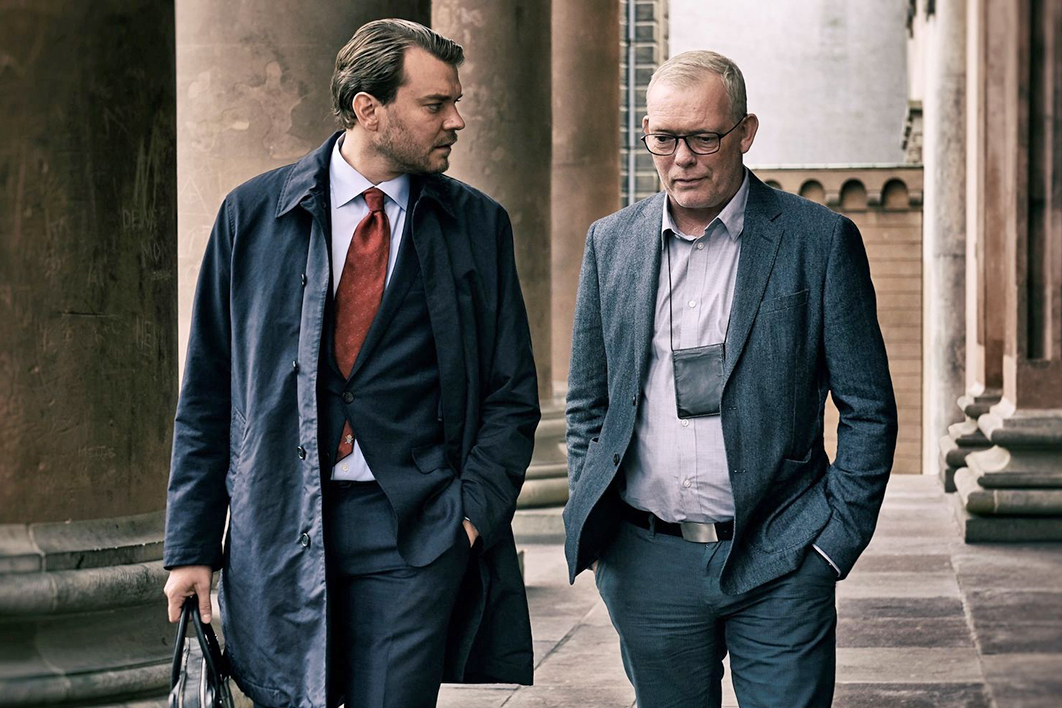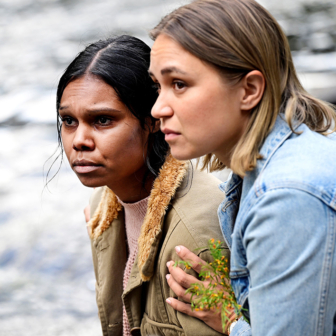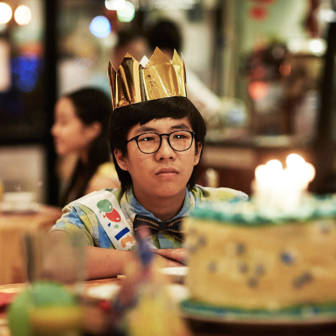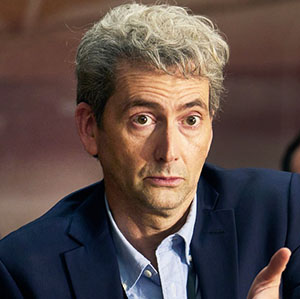When the Danish series The Killing was first broadcast to English-language audiences ten years ago, its runaway success shocked the television industry. Besides defying the assumption that a subtitled series with a complex, slowly evolving plot could never get viable ratings, it threatened British television’s pre-eminence in the genre of the crime thriller. This new Danish series had many of the familiar elements of the forensic detective story, but took psychological realism to another level.
On renewed acquaintance — season one is currently available on SBS — the qualities that spawned a buoyant industry in Scandinavian television are strikingly evident: its sweeping cinematography, the unrelenting dramatic build-up, the cast who form a finely tuned ensemble. Where British series usually depend on a couple of star actors, here every performance is riveting. Part of the secret is their strong theatrical tradition, whose defining influences are the dark poetic visions of Ibsen and Strindberg.
Amid the arctic landscapes of more recent series, Fortitude and Trapped, an ominous view of human nature escalated into quasi-surrealist horrors that engulfed whole communities. But now two new miniseries from Denmark, The Investigation and Cry Wolf, move in the opposite direction, with a stringent commitment to social realism and a focus on how sinister dimensions emerge in everyday life, to be grappled with and contained. Both are streaming on SBS.
Søren Malling, who played the brash young detective trying to rival Sarah Lund in The Killing, heads the team in The Investigation as a senior officer subdued by long experience in the school of hard knocks. The story, based on actual events in 2017, begins with a court case gone wrong. The police prosecutor loses on a technicality, and a murder suspect is acquitted. It’s a devastating verdict for Jens Møller (Malling), who conducted the investigation, and for the victim’s family, whose distress he witnesses. But it’s in the nature of the job, and with scores of such cases behind him, Møller knows better than to ever be confident of a desired courtroom outcome.
For prosecutor Jakob Buch-Jepsen (Pilou Asbæk), younger and less mellowed, it’s an experience not to be repeated. When another murder takes place, one that seems to foreshadow more atrocities, he maintains close contact with Møller’s team (something permitted under Danish law) and refuses to accept the brief until the evidence is safe against legal loopholes.
The usual elements of crime drama are absent; all the dramatic tension arises from the tussle over technicalities. The spectacular aspects of the murder, which involves the decapitation and dismemberment of journalist Kim Wall aboard a private submarine, are not exploited. The state of the corpse is reported in discussions between Møller and the pathologist, but there are no shots of grisly procedures in the morgue. Interviews with the prime suspect, whose guilt is never in doubt, focus entirely on the legal implications of his testimony. As series creator Tobias Lindholm has said, “the story was simply not about him.”
The idea of a dramatic approach arose from conversations Lindholm had with Møller, whose account focused on the extraordinary work done by marine search teams and on the fortitude of Wall’s parents. It’s always hard to make the reaction of the victim’s parents a compelling element in a crime drama. They have little to do but contain their grief as best they can and wait for justice. Lindholm’s determination to give them some dramatic traction pays off through the casting of Pernilla August and Rolf Lassgård, both distinguished theatre actors who know how to establish a presence with minimal action and dialogue. Their real-life models, Ingrid and Joachim Wall, both journalists who wrote their own account of their daughter’s loss, were involved in the creation of the series, and insisted on the family dog Iso appearing as herself.
Other key figures in the investigation also find themselves enduring an enforced passivity. This portrayal of impasse may run counter to the conventions of crime fiction, but the tension can if anything be more compelling than the manufactured excitement of detective stories that involve sudden call-outs in the small hours, shootouts, showdowns and chases. When Møller’s family dinner is interrupted by a phone call, it is simply news of yet another blocked avenue. Asbæk, a major star since his appearance as a swashbuckling villain in Game of Thrones, here takes on a role at the opposite end of the spectrum — formal, reserved and relentlessly sceptical.
This apparently perverse approach to creating suspense pays off brilliantly by exploiting the capacity of the best actors to hold attention with the most sparing words and gestures. As a counterpoint, the marine explorations in the Oresund Strait are recreated in full, with involvement from the original diving team and the frigate used to raise the real submarine.
Cry Wolf offers another view of the seasoned professional navigating the stresses of an investigation in which the evidence just refuses to stack up. It is not based on an actual case, but rather one that is typical.
When an essay by a fourteen-year-old girl detailing violent abuse by her stepfather is brought to the attention of social services, it lands on the desk of Lars Madsen, an overweight and overburdened senior case officer. Madsen (Bjarne Henriksen) wearily slides the document to the front of his desk, but as he reads, the quality of his attention changes.
Henriksen, another veteran from The Killing, is one of those actors who can hold your interest while he reads a document. More than that, he’ll have you on the edge of your seat. Evidently the child’s story contains graphic material, but the matter of who did what to whom, and when, is not the issue here. Rather, Madsen has to get to the truth of an ongoing situation, led by the testimony of a juvenile witness with a wayward imagination. Relying partly on trained observation and, in the eyes of his supervisor Mona Michelsen (Lila Nobel), rather too much on instinct, he orders the immediate removal of the girl and her brother.
As the story evolves, distress mounts on all sides. Clearly both Holly (Flora Ofelia Hofman Lindahl) and her younger brother Theo (Noah Storm Otto) are traumatised. Socially withdrawn, neither is doing well at school, and Theo has a recent injury to his arm. Yet their parents appear genuinely dumbfounded by the sudden accusation. Once the children are placed in foster care, their mother (Christine Albeck Børge) must gain permission from officious care workers even to talk to them. Theo, acutely distressed, is obsessed with going home. All this places immense pressure on Madsen as he confronts increasing signs of Holly’s unreliability.
Who is telling the truth? It’s one of the oldest and most fraught questions in human relationships. And when legal and institutional processes are brought in to adjudicate, their terms of engagement are critical. In the Danish system, the odds are stacked heavily against the parents, which only increases the pressure on Madsen. If he makes the wrong call, lives will be ruined and it will be on his head.
From a dramatic point of view, everything depends on a narrative structure that interweaves contrary signs and ramps up the tension with telling details. Showrunner Maja Jul Larsen, one of the lead writers for the hit series Borgen, has a flair for showing how micro-elements of human behaviour can amplify the dynamics of a situation, with widespread fallout. The casting — especially that of the two children, who carry the storyline — is perfectly judged.
With so many series on offer, it’s easy to be lured by those that promise obvious forms of suspense and excitement. An invitation to venture into the changing shades of everyday darkness is easy to resist, and yet making the gamble can be a deeply revealing process. With guidance from the best kinds of human intelligence, it’s how the light gets in. •




